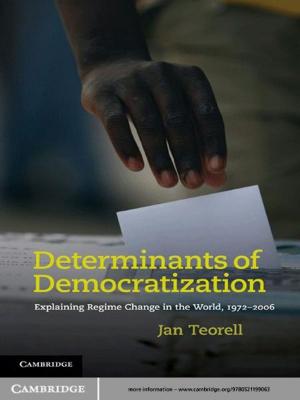Transitional Jurisprudence and the ECHR
Justice, Politics and Rights
Nonfiction, Reference & Language, Law, International, Social & Cultural Studies, Political Science| Author: | ISBN: | 9781139124751 | |
| Publisher: | Cambridge University Press | Publication: | August 11, 2011 |
| Imprint: | Cambridge University Press | Language: | English |
| Author: | |
| ISBN: | 9781139124751 |
| Publisher: | Cambridge University Press |
| Publication: | August 11, 2011 |
| Imprint: | Cambridge University Press |
| Language: | English |
The European Convention on Human Rights has been a standard-setting text for transitions to peace and democracy in states throughout Europe. This book analyses the content, role and effects of the jurisprudence of the European Court relating to societies in transition. It features a wide range of transitional challenges, from killings by security forces in Northern Ireland to property restitution in East Central Europe, and from political upheaval in the Balkans to the position of religious minorities and Roma. Has the European Court developed a specific transitional jurisprudence? How do politics affect the ways in which the Court's judgments are implemented? Does the Court's case-law itself become woven into narratives of struggle in transitional societies? This book seeks to answer these questions by highlighting the unique role of Europe's main guardian of human rights, the Court in Strasbourg. It includes a comparison with the Inter-American and African human rights systems.
The European Convention on Human Rights has been a standard-setting text for transitions to peace and democracy in states throughout Europe. This book analyses the content, role and effects of the jurisprudence of the European Court relating to societies in transition. It features a wide range of transitional challenges, from killings by security forces in Northern Ireland to property restitution in East Central Europe, and from political upheaval in the Balkans to the position of religious minorities and Roma. Has the European Court developed a specific transitional jurisprudence? How do politics affect the ways in which the Court's judgments are implemented? Does the Court's case-law itself become woven into narratives of struggle in transitional societies? This book seeks to answer these questions by highlighting the unique role of Europe's main guardian of human rights, the Court in Strasbourg. It includes a comparison with the Inter-American and African human rights systems.















